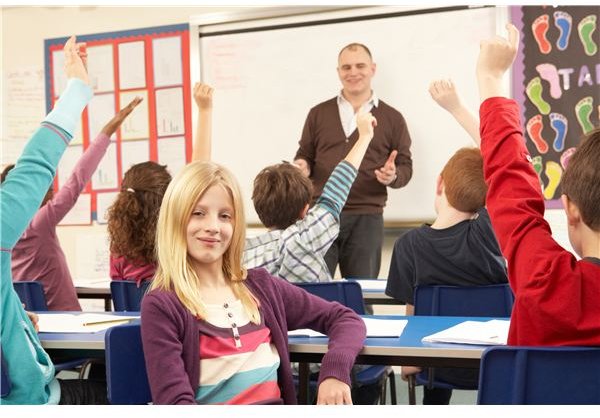Teach the Gifted Students in Your Classroom to Develop Critical Thinking Skills
Class Discussions
Teachers can encourage critical thinking skills, and gifted students can develop them through in-depth class discussions. Students can
pose their own questions, or teachers can ask questions where students have to do more than just recall facts.
For example, if you’re studying the causes of the Civil War with your fifth grade class, you could ask them a simple question like: what are the causes of the Civil War? This is a knowledge question. However, you can encourage more in-depth discussions by asking questions like: compare and contrast the reasons why the North entered into a war with the South during the U.S. Civil War; or looking at the causes of the Civil War, which ones do you think were the most crucial?
When students discuss questions such as these, they will be sharing their opinions with each other after analyzing information presented in class. They will also be supporting their opinions and ideas with facts. Gifted students and students on grade level can take part equally in these types of conversations.
Self-Evaluation
Teachers can develop critical thinking skills, and gifted students can improve theirs through self-evaluation. Evaluating yourself is not an easy task, and it takes a great amount of insight to identify your own strengths and weaknesses. You can ask students to evaluate themselves after they gave a presentation, for example. Students could fill out an evaluation sheet, highlighting what they did well during the presentation and what they could improve on.
Students can also be taught to evaluate each other and/or discuss their own evaluation with their peers. The focus should always be on building on each individual’s strengths to improve in the academic area. Other opportunities for self-evaluation and developing critical thinking skills would be at the end of a semester, at the end of a unit of study, after taking a written test, or after a game or sport. It’s important for teachers to model self-evaluation and point out its usefulness in everyday life.
Real-Life Problem Solving
Teachers can help students with critical thinking skills, and gifted students can get involved in solving real life problems to develop their critical thinking skills. For example, in the classroom, students waste a lot of paper – they might use an entire notebook sheet of paper to do five math problems; or the classroom supply of math scratch paper is always running out because students work out one problem and then put it in the recycling bin.
Teachers can present the problem to the class, and then students can brainstorm more efficient ways to use paper in the classroom. They discuss the different ideas and come up with the best solution. These class discussions often take place during a classroom meeting, and the teacher acts as a facilitator.
Teachers may be targeting gifted students to develop their critical thinking skills as part of the gifted curriculum, but all students can benefit from in-depth discussions, self-evaluation, and real-life problem solving.
References
- Duke University, “Enhancing Critical-Thinking Skills in Children: Tips for Parents”
